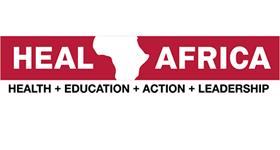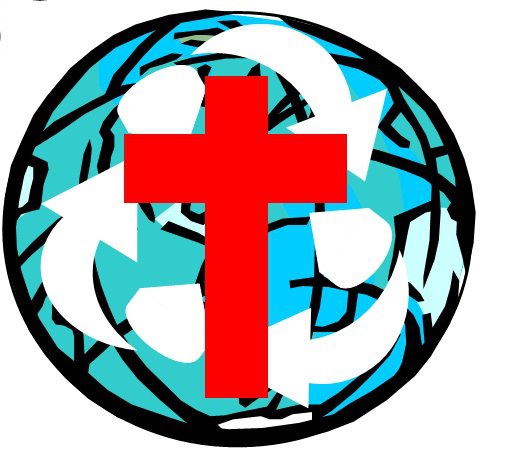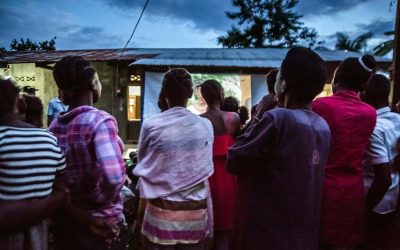Ushindi project
comprehensive approaches to combat sexual and gender-based violenceIntegrating medical, legal, psychosocial and economic support services to survivors and those affected by SGBV, as well as promoting behavior change and prevention.
Overcoming SGBV in Eastern DRC
Sexual and gender-based violence, or SGBV, remains a significant and endemic problem in the DRC and is exacerbated by the ongoing conflict in the central and eastern regions of the country. The Ushindi program, which means “to overcome” in Swahili, was a $20 million U.S. Agency for International Development cooperative agreement to implement comprehensive approaches to SGBV, in eastern DRC. The project worked in 10 health zones and 108 health areas with a target population of 1,592,198.
In short, some of Ushindi’s greatest achievements were:
Sustainability
IMA’s strategy to work through the health zone structure and with local NGOs has enhanced sustainability for Ushindi’s activities;
Increased legal prosecution
The organization of mobile legal clinics has permitted the expansion and impact of legal prosecution;
Far-reaching behavior change communications activities
Ushindi’s BCC campaigns reinforced the protection of maternal and child rights by dramatically increasing in marriage and birth registrations;
Cutting edge methods of therapy for survivors
The addition of mobile strategies for group Cognitive Processing Therapy has been shown to be feasible;
Leading the Way in the flight against sgbv
USAID reports showed the Ushindi program reached about four times as many survivors as projects with similar funding levels and timeframes. As a result, Ushindi received an 18-month extension in the fiscal year 2016 to conduct in-depth research on the project’s implementation model and to develop a readily accessible package for USAID to implement high-quality SGBV interventions in new areas. Through this extension phase, IMA piloted this new package, including cognitive processing therapy-based psychotherapy, in three new health zones to present evidence of efficacy and cost and other practical considerations for scale-up.
Implementation Period
2010 to 2017
Duration
8 years
Project Cost
$20 million
Donor
USAID
The project worked in 10 health zones and 108 health areas with a target population of 1,592,198.
survivors received urgent and free medical care
More than 17,500 survivors have received urgent and free medical care comprising of Post Exposure Preventive kits, sexually transmitted infections treatment, trauma, and fistula care.
Survivors received counseling
More than 30,000 survivors of SGBV have received counseling including Cognitive Processing Therapy, a form of specialized group therapy.
people Received legal counseling
More than 16,000 people have received legal counseling and more than 3,000 cases of SGBV have been brought to a Congolese court of law.
People have improved their socio-economic status
More than 45,000 people (80 percent women) have improved their socio-economic status through participation in village savings and loan associations and livelihood grants.
organizations formed
1,500 organizations, including health facilities and youth clubs, have been formed, equipped and strengthened to respond to SGBV in their respective communities.
People reached by BCC activities
More than 1.7 million people have been reached by BCC activities, including 55,000 community leaders and 388,000 school children.
people benefited from capacity building activities
More than 5,500 people have received formal training in the care of survivors and prevention of SGBV, including doctors, nurses, paralegals, counselors and community leaders.
Map
The ushinde project worked in three provinces of Eastern drc: Ituri, North Kivu, and south Kivu.
Fatima’s Story
“It happened four years ago,” Fatima begins. “I was traveling to Ngunga, two days’ walk from my village, to sell palm oil. I was with 10 other women and six teenage boys from my village. On the second day of our voyage we set out at 7 a.m. Soon after, we were surprised by two armed men. They took us into the forest and they raped us, one after the other. When they were done with us, they took the young men and put a gun to their heads and forced them to also have sex with us. This was a great dishonor. These young men were like children to us. I didn’t tell my husband what happened because I was afraid he would leave me. But two months later, an armed group came to my village and took four men by gunpoint to transport baggage. My husband was among them. I never saw him again.”
Fatima was one of more than 30,000 survivors that received counseling through ushindi.
“We have become very good friends. I learned that everyone felt the same shame as me,” says Fatima, “and the shame began to leave us. We began to feel alive again; to understand what happened, and that it was time to leave it in the past.”
Perhaps this is the greatest gift that Ushindi has provided to its beneficiaries— the gift of a shared past and a future that can be forged together.
Communicating social and behavior change through entertainment education
IMA’s behavior change communication team worked with Ushinde staff and local media experts to produce four entertaining videos that educated the community on topics relating to gender-based violence including early marriage, equal opportunity for girl’s education, inheritance laws, and the positive male role in society. For versions with English subtitles, please visit our Resource – Videos page.
Partners
One hallmark of Ushindi was its local implementing partners, who have an extensive history of providing services to victims of SGBV in DRC. The project was managed under the direction of IMA with three local implementing partners: HEAL Africa, Panzi Foundation, and Program for the Promotion of Primary Health Care. To complement implementation by local partners, IMA partnered with four technical partners: American Bar Association Rule of Law Initiative, Save the Children, CARE and Children’s Voice. During the second and third phase of the project, technical partners were modified to reflect the current needs. The current technical partners for the closing extension phase included three technical partners: American Bar Association Rule of Law Initiative, the University of Washington with Johns Hopkins University, and Overseas Strategic Consulting.










Publications
Gender & SGBV
Tushinde Technical Briefs:
Family Planning (pdf)
Mass Campaigns (pdf)
Psychosocial Care (pdf)
Trafficking-In-Persons (pdf)
Community-Based Trauma Healing (pdf)
Village Savings and Loan (pdf)
GBV Response Through Post-Exposure Prophylaxis Kit Procurement and Distribution IV - March 2023 (pdf)
ASSR - Gender Equality and Social Inclusion - June 2022 (pdf)
Tushinde Ujeuri - Counter Gender-Based Violence Program's HOLISTIC SEXUAL- AND GENDER-BASED VIOLENCE PREVENTION AND RESPONSE MODEL - May 2019 (pdf)
SGBV Response through Post-Exposure Prophylaxis (PEP) Kit Procurement and Distribution Phase II - February 2020 (English)(français)
PEP Kit Procurement in the DRC - January 2020 (pdf)
Girl Rising, ASSP-ENGAGE Final Report – March 2017 (pdf)
read more about our continued work to overcome sexual and gender-based violence in drc through tushinde
Girl Rising is now showing in four provinces in DR Congo
The Girl Rising revolution continues. Thousands of people in four more provinces of the Democratic...
QUICK CONTACTS
Recent Posts
Implant Method in DRC: A Family Planning Success Story
Spreading the Word about the Implant Method in DRC.News is spreading about the implant method in DRC. The families featured in this article are partly to thank. The stories below are just a snapshot of the impact the implant has made on the lives of families using the...
Implants Create Opportunity in DRC: A Family Planning Success Story
Julienne is one of the many women we celebrate during International Women’s Month. She is a shining example of how implants create opportunity in DRC. She is a 43-year-old mother of four and a force to be reckoned with! Julienne and her husband had three children when...
Safe Delivery App Helps Health Workers Respond To Emergencies In DR Congo
Dr. Nancy Bolan knows how important it is for health workers to have up-to-date information when responding to a maternal or newborn emergency at a clinic in the Democratic Republic of Congo. While serving as a deputy country director for IMA World Health in DRC from...



